Film Name:不成問題的問題 / Mr. No Problem
Adapted from Lao She’s novel of the same name, Fan Wei won last year’s Golden Horse Award for Best Actor and also took home honors at the Tokyo Film Festival. Written and directed by Mei Feng, it paints a black-and-white portrait of Chongqing’s wartime rear during the Republican era…
“Mr. No Problem” boasts its share of accolades and appeal, but that’s about it—stories like this unfold daily around us. Hearing gossip or sharing rumors is one thing; watching it unfold on the big screen is quite another.
Ultimately, it boils down to “human relationships and social conventions.” The poster’s “People·Emotions·Events” already lays bare the film’s essence before our eyes. This makes the film’s title all the more brilliant: any problem can become no problem, but at the wrong moment, even the smallest issue can escalate into a major crisis.
[Warning: This article contains full spoilers. Whether that’s a problem is up to you.]
The protagonist, Ding Wuyuan, director of Shuhua Farm, is known as “Mr. No Problem.” Worldly and smooth-talking, he seems to navigate every situation effortlessly, making everything appear solvable and problem-free.
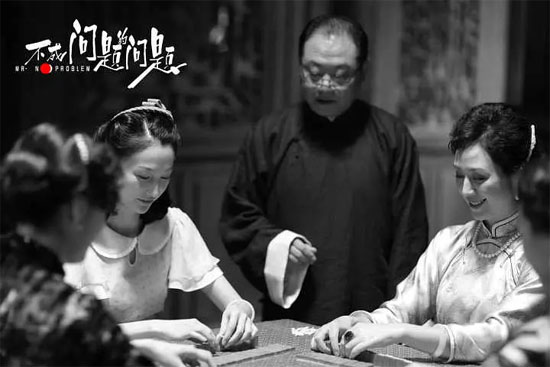
After watching the movie, I truly felt Ding Wuyuan had become a master manipulator. He spoke to people in ways that suited them, never offending anyone and fitting in with everyone, leaving a favorable impression on all—whether helping Boss Xu’s third wife or Boss Tong’s daughter with their affairs, or even using Shanghainese slang like “Sure thing, sure thing” when a mahjong game was short one player; When he spots farmhands gambling during work hours, he warmly approves of their “work-life balance” in Chongqing dialect: “That’s fine, that’s fine”; To curry favor with Miss Tong, who harbors reservations about him, he even claims to have “rubbed off on him” by picking up a bit of foreign lingo: “Yes.”
This director, beloved by all and seemingly flawless in word and deed, harbored one major flaw: in 1943, as the war intensified, Shuhua Farm—located in Chongqing’s rear base, a place “abundant in resources and blessed with talented people”—actually incurred losses. This prompted shareholder Mr. Tong to consider replacing the director.
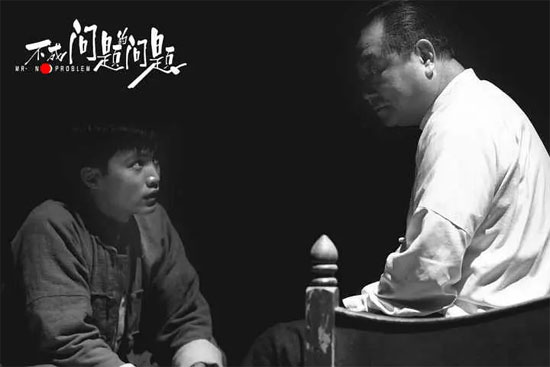
This became Ding Wuyuan’s greatest liability, turning many previously insignificant matters into problems.
Like a chameleon adept at flattery and pandering, Director Ding visited Mr. Xu’s residence daily to deliver fresh produce, meat, and eggs, while also handling various errands and chores. Thus, even as the farm sank into debt, the Third Madam continued to speak on his behalf. He turned a blind eye to workers slacking off, gambling, dawdling, skimming supplies, and pilfering—even running errands for them—so despite frequent wage delays, the laborers remained loyal. As for Qin Miaozhai, who called himself an “all-around artist” and wanted to rent space on the farm to pursue his art, Director Ding not only deferred his rent—which was “still on its way”—but also funded his art exhibition. Where else could you find such a generous “sucker”?
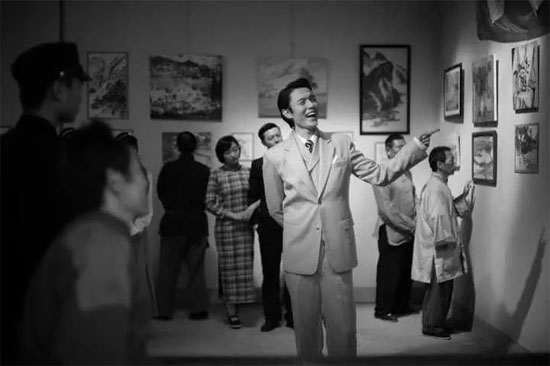
The money belonged to the farm, but Director Ding played the role of the good guy. Perhaps Ding Wuyuan believed that by ensuring all minor issues remained unproblematic, the major problem of the farm operating at a loss would also cease to be an issue.
As the saying goes, where you sit determines how you think. Mr. Xu wasn’t swayed by this approach. He recognized that the “perks” mentioned by the Third Madam were merely “small favors,” and that sustained losses were ultimately unsustainable. Coupled with incidents like military police raiding the farm to arrest people, he finally resolved to heed shareholder Mr. Tong’s advice and replace the farm’s director.
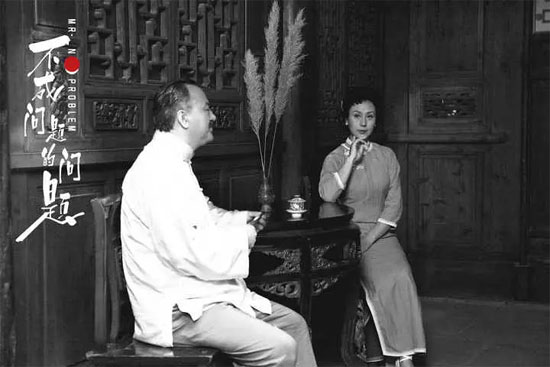
Thus, Dr. You Daxing, a returnee from overseas studies, arrived at Shuhua Farm with his wife Mingxia in a flurry of activity. The one most secretly pleased by this development was likely Accountant Li.
Li was Mr. Tong’s man, while Ding Wuyuan was Mr. Xu’s man—Li had long resented Director Ding’s “do-gooder” act of “using public resources for private gain,” but his position and status prevented him from speaking up… Now, after the “gods fighting above” had finally pushed Ding Wuyuan out and replaced him with Mr. Tong’s man, how could he not be secretly delighted?
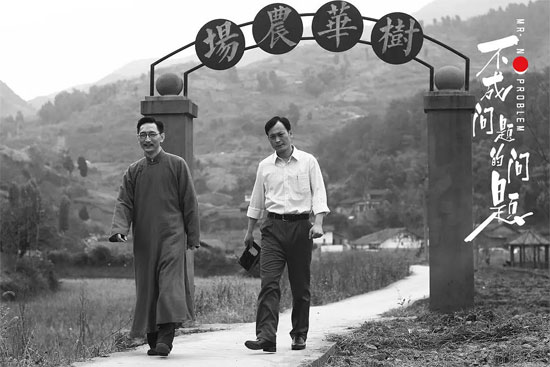
You Daxing was a man of action, sent to tackle the major issue of “money-losing” operations. Thus, problems that Director Ding Wuyuan had never considered issues suddenly became urgent matters requiring his attention: Director Ding blurred the lines between public and private affairs, leaving the farm management in utter disarray. You Daxing set out to establish rules and bring order. The workers were lazy and prone to pilfering, so You led by example, working dawn to dusk and firing the worst offenders. Qin Miaozhai, who freeloaded on the farm while putting on airs, was also intolerable. You issued him an ultimatum…
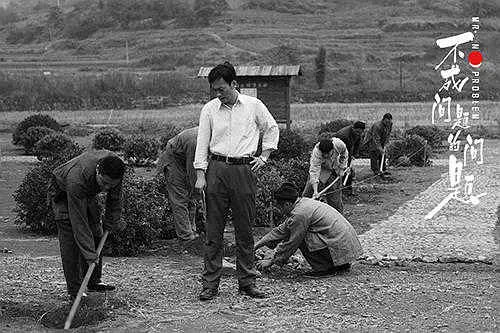
For both the outgoing and incoming directors, the other’s presence became a major issue: You Daxing saw Ding Wuyuan as a smooth operator and schemer who hindered reform at the farm, wanting only to complete the handover and send him packing as soon as possible; Ding Wuyuan, however, found You Daxing stubborn and unyielding, his usual tactics of flattery and networking proving ineffective. With Mrs. You’s understanding, he resorted to the age-old strategy of delaying tactics.
One sought confrontation, the other avoided it. The conflict between them was thus temporarily set aside.
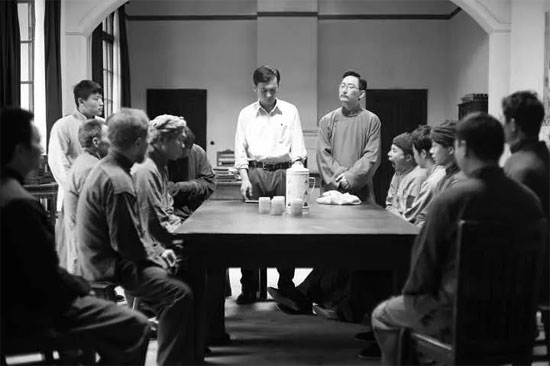
Meanwhile, You Daxing had resolved most of the farm’s longstanding issues and problems. He was brimming with confidence, convinced he could turn the farm’s losses into profits. Accountant Li was also deeply satisfied, as Boss Tong’s influence had finally and decisively surpassed that of Master Xu…
But the workers, accustomed to idleness—especially those who’d been fired—were displeased. The issues You Daxing had addressed were hardly problems under Ding Wuyuan’s rule. Yet they wanted to “rebel” against the new director. The problem was, the incorruptible You Daxing was utterly beyond reproach. So, following Qin Miaozhai’s suggestion, they set their sights on Mrs. You, Mingxia.
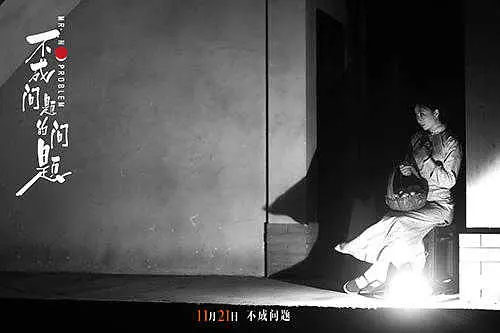
Unlike the iron-fisted, public-spirited You Daxing, Mingxia had never studied abroad and didn’t understand her husband’s strict approach to life. She was simply a woman who understood the importance of “personal connections” in this society. So, with some hesitation, she quietly accepted the eggs the workers gave her—especially since, at Shuhua Farm, a basket of eggs was hardly a problem for the director and his wife.
But for Qin Miaozhai, this matter could be either trivial or significant. As long as Ding Wuyuan hadn’t formally resigned, he still had grounds to maneuver against You Daxing—even if it earned him everyone’s disdain (and frankly, he was already despised by most).
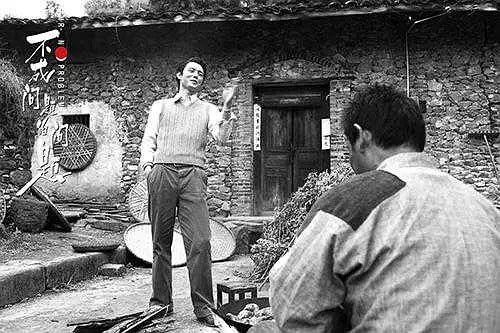
On one hand, Qin Miaozhai stubbornly clung to the farm, refusing to leave and declaring she “only recognized Director Ding.” On the other, she constantly incited workers dissatisfied with You Daxing to oppose the new director. The “handover issue” between the two directors thus morphed into another distorted “management problem.”
Meanwhile, developments unfolded at a higher level. Upon learning of Boss Tong’s scheme to frame Ding Wuyuan, the meticulous manager lost his position. This revelation suddenly made Master Xu realize that while he’d thought his relationship with Boss Tong was unproblematic, serious issues had indeed arisen… Thus, Ding Wuyuan found unexpected fortune and was reinstated as the farm’s deputy director.
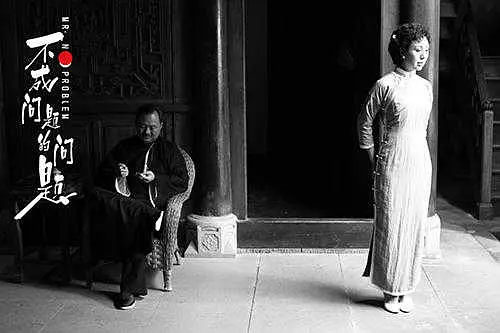
The delaying tactic worked—something Ding Wuyuan hadn’t anticipated, though it might have been a calculated wait. To seal the deal, he even staged a “falling into the river” ploy, muttering about how “being deputy director doesn’t matter, only life does.” welcoming a second spring in his career to confront new challenges—like repeatedly telling Mingxia, “We’ll discuss it tomorrow,” while pretending not to want to see the ledger. The moment she left, he’d immediately grab the ledger from Accountant Li and retreat indoors for a thorough examination…
With Ding Wuyuan still around, the “resistance alliance” stirred up by Qin Miaozhai gained momentum. Even the most trivial issues raised by You Daxing became major scandals: dismissing workers and cutting off their livelihoods (without questioning why they were fired), ostracizing Ding Wuyuan and causing his fall into the river (a completely fabricated charge), and “knowingly breaking the law” by condoning Mrs. You’s “egg theft.”
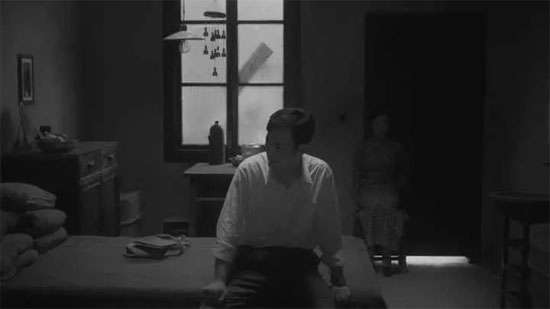
It was clear Qin Miaozhai had organized and participated in student movements—he was adept at posting slogans and chanting slogans. The workers didn’t much care whether the issues he raised about needing to “overthrow You Daxing” were overblown or exaggerated; they just wanted to drive out this new director and return to the “good old days” under Ding Wuyuan’s management. You Daxing had become everyone’s “common problem.”
Overwhelmed by pressure, Mingxia sought help from the “benevolent” Ding Wuyuan. Director Ding, ever the thoughtful and warm-hearted soul, couldn’t bear to see her suffer and finally said, “Go ahead.”

Throughout this turmoil, Ding Wuyuan appeared entirely uninvolved. He even deliberately urged Qin Miaozhai to “show mercy.” By any measure, he wasn’t the one creating problems—on the contrary, he seemed the one striving to solve them.
Finally, You Daxing departed Shuhua Farm. Ding Wuyuan, Qin Miaozhai, and the workers emerged victorious. The balance between Master Xu and Boss Tong was restored, and Master Xu’s inner conflict was resolved.
Ding Wuyuan surveyed the scene of universal satisfaction, glancing at the triumphant Qin Miaozhai beside him—the man who had never been part of the problem… had now become one.

So, one moment he was calling Qin Miaozhai “brother” and casually probing the young man’s background, insisting “even if there’s a connection, it doesn’t matter,” and the next moment he summoned the military police to arrest the “brother” who’d been eating his meals for months.
Once, to avoid stirring up minor issues, Ding Wuyuan had resolved every little problem for everyone around him. This ended up creating the major problem of “losing money,” which then triggered an even bigger “unemployment crisis.” Now that the biggest problem was solved, naturally he had to find ways to deal with the money loss: With Qin Miaozhai’s ten thousand yuan gone without a trace, he rented the room to a Shanghai playboy who could cough up fifteen thousand. He handed the cash directly to Accountant Li for recording, conveniently introducing the young master to Miss Tong. As for the Third Madam, who had always trusted him implicitly, she was an easy conquest…

All hidden dangers and threats were skillfully minimized or dismissed—if non-issues could become problems, then any problem could cease to be one.
The film captures a tip of the iceberg in China’s social “human affairs.” Though set in a small farm, its portrayal of individuality reflects universal human traits. With quiet, almost voyeuristic lenses, it recreates the stories constantly unfolding around us.
What’s even more remarkable is how “Mr. No Problem” achieves subtlety and depth. The overt conflicts on the surface make up only three parts, while the hidden struggles beneath the surface account for seven. Viewers will inevitably have unique interpretations and feelings, just as the title suggests: whether something is a problem or not depends entirely on the timing.

Fan Wei, the award-winning actor, truly embodies his signature style here. He plays a greasy middle-aged man, a masterful chef, a shrewd jack-of-all-trades, and a cunning character who effortlessly switches between earthy realism and otherworldly charm…
If more films like this and performances like his emerge in the future, our confidence in domestic cinema would soar—though that may prove difficult. For this is a problem everyone understands: while we may not know how many You Daxings exist in this pool, it certainly isn’t short on Ding Wuyuans and Qin Miaozhais.
Please specify:Anime Phone Cases » Mr. No Problem 不成問題的問題 2016 Film Review: Any problem can cease to be a problem.